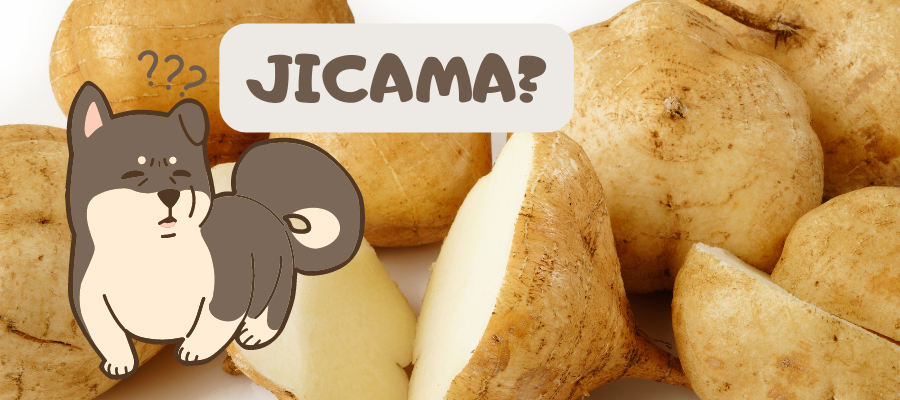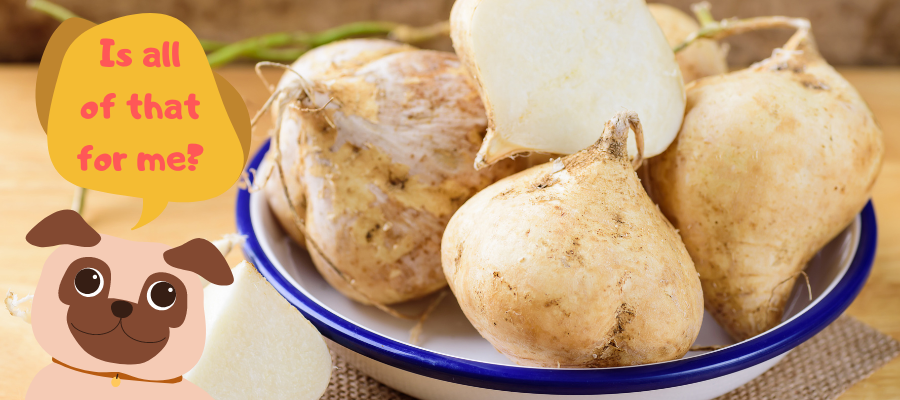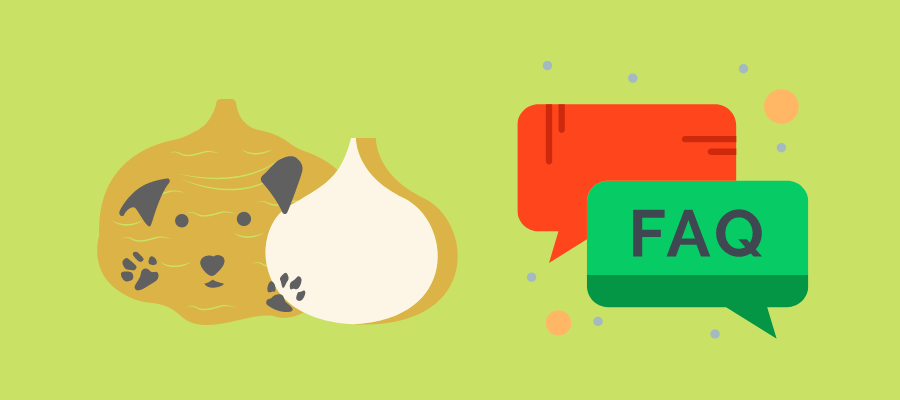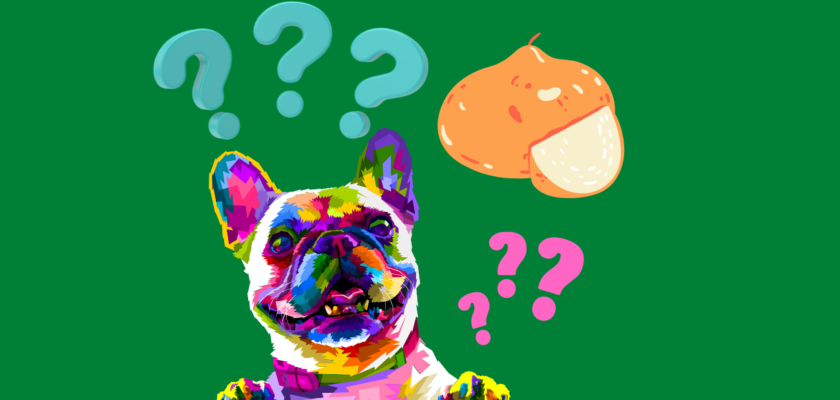Long Story Short
- Dogs can eat small amounts of jicama ✔️
- Peels, seeds, and leaves are not safe for pups ❌
- Cooked jicama is better than raw ✔️
- Too much jicama can make your dog sick ❌
What are Jicama Plants?

Picture this: a crunchy, slightly sweet, apple-like veggie that’s disguised as a potato! Introducing Jicama, the Mexican sensation that’s taken the world by storm! This quirky underground root veggie not only brings the crunch, but it also loves to party with dips, salads, and other veggies.
Sounds good so far, doesn’t it? But can dogs eat jicama?
Can Dogs Eat Jicama?
So, you’re thinking: can dogs eat jicama? Hold up a sec! While jicama is safe for doggos in moderation, too much of this tuberous treat could land Fido in a world of tummy trouble. If you’re thinking about adding a jicama twist to your pup’s menu, hit up your vet first to make sure it’s a good match and that your fur baby isn’t allergic
In theory, jicama for dogs is just like asparagus (overall it’s good, but too much is rather bad). Read more about dogs and asparagus here!
Is Jicama Good for Dogs?

Still pondering whether to add jicama to the dog food? Then, let us tell you some of the benefits of this veggie!
- Jicama is a nutritional powerhouse. It’s packing some serious heat with minerals like magnesium, phosphorus, and zinc.
- Plus, it’s got antioxidants that’ll help you and your furry friend fend off pesky diseases.
- Oh, and let’s not forget it’s a low-cal, high-fiber superstar that can boost digestion and energy levels. Talk about the perfect sidekick for humans and canines alike looking to shed a few pounds or rock a healthy bod!
- But wait, there’s more! Jicama is also rocking vitamins C and B6, along with potassium. These nutrients are like a dream team for your pup’s heart, nervous system, and immunity against bacteria and viruses.
So, can dogs eat jicama? We would say: they should! You may be surprised at how delicious it is, and how much they enjoy this new food!
When Is Jicama Not Safe for Dogs? Inulin and Rotenone
Sadly, there are two sides to every coin. Jicama can be dangerous for dogs for two main reasons. Inulin and rotenone.
Inulin
Inulin is a carbohydrate and a prebiotic (it helps promote the growth of healthy bacteria in the gut). It is also a good source of fiber, which can help improve digestion and reduce the risk of heart disease and other health problems. BUT! It’s also a laxative. Too much inulin can result in a very stinky house, real quick.
Now, the next issue is rather unlikely, but still possible. The inulin found in jicama can cause a condition called intestinal blockage in dogs. This is a serious and potentially life-threatening condition that requires emergency surgery to correct.
Rotenone
Heads up, dog parents: rotenone – a not-so-furry-friendly pesticide – is bad news for your pooch. If ingested, it could lead to severe doggy toxicity or even a one-way ticket to the big dog park in the sky. Keep an eye out for red flags like a runny tummy, vomiting, lethargy, itchiness, and seizures, especially if your furball has food allergies.
Editor’s Note 🐕
I know all the “scientific” words seem scary, but to be honest, they aren’t. The most important part is that jicama is safe, and these substances are only bad in excess.
Can Dogs Eat Jicama Peel and Seeds?

Can dogs eat jicama rinds and pits? Nope, always remove the peel and any seeds before giving it to your pet. Make sure you cut away the toxic root, and only give your pup the flesh.
Can Dogs Eat Jicama Leaves?
And what about the leaves? Sadly, dog owners should avoid jicama leaves. They are very toxic, and will only cause problems for your dog’s digestive system.
Raw Jicama or Cooked Jicama for Dogs?
Hold the raw jicama, please! Though it may be tempting to let your dog indulge in this fresh and crunchy delight, it’s a no-go for doggy digestion. Raw jicama packs a higher inulin punch than the cooked version, which could lead to bloating, gassy mishaps, and some seriously uncomfortable gut grumbles. Stick to cooked jicama to keep your pup’s tail wagging and their tummy happy!
Can Dogs Eat Jicama FAQs

Are Dogs Allergic to Jicama?
Yes, some dogs are allergic to jicama. The signs of allergy include: itchiness, vomiting, red spots, and diarrhea.
Can Jicama Be Poisonous?
The peels, seeds and leaves of jicama are all poisonous to dogs.
Do Animals Eat Jicama?
Yes, they do 🙂 Animals that eat jicama include cows, pigs, horses, chickens, and ducks.
Is Jicama Hard on the Stomach?
In large amounts, yes, it is.
Similar Posts:
- Can Dogs Eat Celery? Is This Crunchy Veggie Safe for Dogs?
- Can Dogs Eat Cucumbers? The Benefits of Cucumber for Dogs
- Can Dogs Eat Persimmons? Are the Seeds or Pits Bad for Dogs?
- Can Dogs Eat Pumpkin Seeds?
- Can Dogs Eat Okra? Is This Vegetable Bad for Dogs?
- Can Dogs Eat Sweet Potatoes? Are Yams Good for Dogs?
- Can Dogs Eat Jackfruit?
- Can Cats Eat Cucumbers? Get the Scoop on This Cool Veggie! 🥒 🐱

